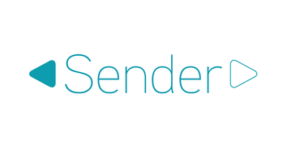 Sustainable Consumer Engagement and Demand Response
Sustainable Consumer Engagement and Demand Response
Grant agreement ID: 957755
Duration: October 2020 – September 2024
Cordis: https://cordis.europa.eu/project/id/768575
Website: https://www.sender-h2020.eu/h2020/
LinkedIn: https://www.linkedin.com/company/h2020-sender/
Description
As the EU moves towards sustainable energy, co-creation is the future of the energy service market. This entails a shift in the balance of power, turning customers into a new generation of collaborators and putting them at the heart of the energy sector. The EU-funded SENDER project will develop energy service applications for proactive demand response (DR), home automation convenience and security mechanisms. By engaging customers in a co-creation process, the project will shift DR from a reactive to a proactive approach. Consumer data will be collected and processed to identify typical consumption patterns, mirror them by digital twins (DTs) based on artificial intelligence technologies and aggregate the DTs’ supply/demand characteristics.
SENDER will develop the next generation of energy service applications for demand-response, home-automation, -convenience and -security. It puts consumers at the heart of the energy market by engaging them in a co-creation process with other actors from the energy domain during the specification of pro-active DR mechanisms to cater for the consumers’ long-term incentivization.
Grid operators are the 2nd group of SENDER core beneficiaries. The project results will increase the efficiency/hosting capacity of distribution networks by improving the quality of load forecasts and providing access to load flexibility, which will allow to improve frequency stability, congestion management and increased RES integration. In addition, monetarization on the flexibility potential will be provided by the participation in balancing/regulatory power markets.
SENDER shifts DR from a reactive to a pro-active approach. Consumer data will be collected and processed by means of sensor data from its premises in a cyber-secure way to identify typical consumption patterns, mirror them by digital twins (DT) based on artificial intelligence technologies and aggregate the DTs supply/demand characteristics. The clustering of the consumer DTs will be conducted based on societal science approaches at three demonstration sites.
Allowing interoperability with legacy systems and third-party applications, SENDER envisions business models (BM) that base on the condition that the consumer receives a fair share of the DSOs profit from flexibility use. BMs will focus on the role of the DSO as a facilitator, but also on energy communities/cooperatives as local actors that will manage their members´ flexibility assets. Based on the co-creation process, consumers will also be actively involved into the BM design.
The SENDER wider roll-out after the project will be prepared by exploitation plans and implementation guides for the co-creation process and the SENDER soft- and hardware.

